かつて日本では、「いい大学を出れば一生安泰」という学歴主義的な価値観が広く受け入れられてきました。しかし近年、社会の変化や働き方の多様化に伴い、「大学名より実力やスキルがものをいう時代が来る」との声が高まっています。もちろん学問の修得や大学教育そのものの価値が失われるわけではありませんが、これまでのように“ブランド”としての学歴に頼るだけでは、十分な評価を得られなくなる可能性があるのも事実です。
本記事では、“学歴主義からスキル主義へ”というパラダイムシフトが起こりつつある背景と、その中で求められるこれからの教育・学び方、そして親のサポートのあり方について考えていきます。
1. なぜ学歴よりもスキルが注目されるのか?
● テクノロジーの進化と新しい働き方
AI(人工知能)やICT(情報通信技術)の発展により、労働市場はかつてないスピードで変化しています。これまで人が行ってきた定型的な業務は自動化が進み、“考える力”や“創造性”がより重要視されるようになりました。加えて、副業やフリーランス、リモートワークなど働き方の選択肢も増え、「企業に入って長く勤め上げる」だけがキャリアの正解ではなくなっています。
こうした状況下で重視されるのは、大学名や偏差値といった“肩書き”ではなく、「実際に何ができるのか?」「現場でどんな成果を出せるのか?」というスキルや実務能力です。自分が持つスキルセット次第で、働き方やキャリアを柔軟に選択できる時代が到来しつつあるのです。
● 学歴の“ブランド力”が相対的に下がる
もちろん難関大学で得られる学問の深さやネットワーク、信頼などは依然として大きなアドバンテージですが、それだけで一生安泰とはいえなくなってきています。なぜなら、仕事における成果がよりダイレクトに評価される環境が整いつつあり、学歴があっても実力を示せなければ評価されにくいからです。逆に、高卒や専門学校卒でも実績やスキルによっては高い評価を得られる可能性が高まっています。
2. スキル主義の時代に求められる学びとは?
● “汎用スキル”と“専門スキル”の両輪
スキル主義が高まる時代では、どの分野にも応用できる“汎用スキル”と、自分が強みを発揮できる“専門スキル”の両方をバランスよく磨くことが重要です。
- 汎用スキル:コミュニケーション能力、問題解決能力、論理的思考、チームワーク、プレゼン力など、どんな仕事でも活用しやすい基礎的な力。
- 専門スキル:プログラミング、デザイン、語学、経営ノウハウ、マーケティング手法など、特定の職種や分野で武器になる力。
これからの教育や学習では、知識の暗記だけでなく「これらのスキルをどう身につけるか」が大きなテーマになってくるでしょう。
● “学び続ける力”が最高の武器
さらに、社会変化が激しい時代では、一度身につけたスキルがずっと通用するわけではありません。新しい技術や手法が次々と出てくるなかで、“学び続ける力”こそが最大の武器になります。
- 自分で疑問を見つけ、調べ、試行錯誤する探究心
- 失敗を恐れず挑戦するマインド
- 自分の成長を客観的に評価し、アップデートし続ける姿勢
こうした“メタスキル”を育てることが、子どもが大人になってからも成長を止めないエンジンとなるのです。
3. これからの教育で注目されるアプローチ
● 探究学習やプロジェクト型学習(PBL)の重要性
一斉授業で知識を詰め込み、テストで点数を競うスタイルだけでは、スキル主義の時代を生き抜く力を十分に育むのは難しくなっています。そこで注目されるのが“探究学習”や“プロジェクト型学習(Project-Based Learning:PBL)”です。
- 探究学習:子ども自身がテーマや疑問を設定し、調べたり実験したりしながら答えを探すプロセスを通じて、問題解決力や主体性を養う。
- プロジェクト型学習(PBL):グループで課題を設定し、役割分担や意見交換をしながら最終的なアウトプット(プレゼン、製品開発など)を行う。チームワークやコミュニケーション、企画力など実践的なスキルが磨かれる。
● STEAM教育の広がり
海外を中心に広がっているSTEAM教育(Science, Technology, Engineering, Arts, Mathematics)は、理系科目にアート(芸術)を加え、横断的に学ぶアプローチです。芸術やデザインといった創造性を理系分野と組み合わせることで、発想力や総合的な課題解決力が高まります。日本でも少しずつ注目が高まっており、今後の教育改革の鍵として期待されています。
4. 親ができるサポート方法
(1)「学歴=正解」の価値観を子どもに押し付けすぎない
親としては、学歴が大事だった時代の経験や常識を子どもに伝えたい気持ちもあるでしょう。しかし、「いい大学に行けばとりあえず安心」といった考えを一方的に押し付けると、子どもの個性やスキル育成の芽を摘んでしまう可能性があります。もちろん、大学での学びが有益であることは言うまでもありませんが、「最終的に何をしたいのか」を尊重する姿勢が大切です。
(2)子どもの“興味”や“得意”を活かせる学習環境を探す
プログラミングや語学、音楽、アートなど、子どもの興味を持った分野があれば、それを伸ばすための環境を提供することを検討してみましょう。たとえばプログラミング教室やオンラインの学習プラットフォーム、趣味のサークルなど、多様な選択肢があります。早い段階で「自分はこれをやってみたい」と思えるスキルや分野を見つけられれば、モチベーションを高めやすくなります。
(3)プロセスを重視した声かけ・評価を行う
テストの点数や結果だけを評価するのではなく、「どうやって考えたの?」「どんな方法を試した?」など、プロセスを認める声かけを意識しましょう。スキル主義の時代では、自分なりに試行錯誤して成果を出す能力が求められます。失敗しても「そこから何を学んだか」を親子で振り返ることで、挑戦を続ける意欲を育むことができます。
(4)親も“学び続ける姿勢”を見せる
子どもにばかり「頑張りなさい」と言うのではなく、親自身も新しいことに挑戦している姿を見せるのは有効です。たとえばオンライン講座で学び直しをしたり、趣味や副業にチャレンジしてみるなど、子どもにとっては「大人になっても成長を続けるんだ」という具体的なモデルとなります。
5. 学歴とスキルは対立しない:両方を活かす道
ここまでスキル主義の重要性を述べましたが、決して「学歴を否定する」わけではありません。大切なのは“学歴をゴールにしない”というマインドセットです。
大学や大学院に進学することで得られる学問的な視野の広さや、人的ネットワーク、研究環境などは、スキル構築においても大きな武器になります。ただし、ただ大学に入るだけではなく「そこで何を学ぶか」「どんな経験を積むか」が重視されるべきなのです。
- 学歴が武器になるケース: 大規模な研究機関や学術的な仕事、特定の資格を得るための学問ベースなど。
- スキルが武器になるケース: プログラミングや映像制作、デザインなど、実務能力が直接仕事の成果につながる分野。
要するに、学歴とスキルは対立する概念ではなく、互いに補完し合うもの。学歴を使ってスキルを高める道もあれば、スキルを先に身につけてから高等教育を受ける選択肢もあります。本人の目指す未来や適性に応じて、柔軟に選べる時代が本格的に到来しているのです。
まとめ:自らのスキルを活かして“幸せなキャリア”を築くために
学歴主義からスキル主義へと移行しつつある今、多くの親や子どもたちにとって「将来どんな進路を選べばいいのか」は悩ましいテーマです。しかし、最も大切なのは「自分はどんなことが得意で、何をしているときに幸せや充実感を得られるのか」を見極め、それを伸ばすための学びや環境を整えていくことではないでしょうか。
- スキル主義の時代
- 汎用スキル(コミュニケーション、問題解決、チームワークなど)と専門スキルの両立
- 学び続ける姿勢(自分で情報を取りに行き、試行錯誤できる力)の重要性
- 探究学習やプロジェクト型学習を通じて実践力を養う
- 親ができるサポート
- 学歴至上主義を押し付けず、子どもの興味・得意分野を尊重
- プロセスを認める声かけで、挑戦しやすい雰囲気を作る
- 親自身も学ぶ姿勢を見せ、一緒に成長する家庭文化を育む
今後、さらに変化が激しくなる社会の中で、子どもたちが自らのスキルや知識を活かして“幸せなキャリア”を築くためには、単に「大学に合格する」だけでなく、そこで何を学び、どんな力を身につけるかが問われるでしょう。学歴とスキルの“いいとこ取り”ができる柔軟な発想を持ち、親子で将来を見据えながら一緒に考えてみてはいかがでしょうか。
From Academic Credentials to Skill-Based Merit: Rethinking Education and Parental Support in the New Era
For a long time in Japan, people believed that graduating from a prestigious university guaranteed lifelong success. However, with rapid social changes and increasingly diverse career paths, many now emphasize that “skills matter more than academic credentials.” This doesn’t mean that higher education or academic achievement has no value—rather, relying solely on a “brand-name diploma” may no longer guarantee the respect and opportunities it once did.
In this article, we’ll explore the background behind this shift from academic status to skill-based merit, the kind of learning that will matter most going forward, and how parents can effectively support their children in this new landscape.
1. Why Are Skills Gaining More Attention Than Academic Credentials?
● Technological Advancements and Evolving Work Styles
Thanks to AI (Artificial Intelligence) and ICT (Information and Communication Technology), the labor market is transforming at an unprecedented pace. Routine tasks that people once performed are rapidly being automated, heightening the need for “creative thinking” and “problem-solving skills.” Moreover, with freelancing, remote work, and side jobs becoming more common, sticking with a single company for decades is no longer the sole formula for career success.
In this setting, it’s no longer about the name of your university or your test scores; instead, “What can you actually do?” and “What achievements can you deliver in the real world?” are the key questions. As skill sets become paramount, workers who excel at specific abilities can enjoy greater freedom and flexibility in shaping their careers.
● The Declining “Brand Power” of Diplomas
Elite universities still offer significant advantages, such as advanced academic knowledge, networking opportunities, and credibility. However, that alone doesn’t guarantee a stable career. Companies increasingly emphasize tangible results and competencies, meaning someone with a high-level degree but insufficient skills may struggle to prove their worth. Conversely, individuals with lower formal education can excel if they demonstrate exceptional talent or expertise.
2. Learning That Matters in a Skill-Based Era
● The Importance of Both “Generic Skills” and “Specialized Skills”
In a world that values demonstrable competency, it’s critical to develop both general-purpose (generic) skills and specialized skills.
- Generic skills: Communication, problem-solving, logical thinking, teamwork, presentation—versatile capabilities applicable to various fields.
- Specialized skills: Programming, design, language proficiency, business strategy, marketing—technical abilities that can serve as a career “weapon” in a specific domain.
Moving forward, education will focus less on memorizing facts and more on how to master these crucial skills.
● Lifelong Learning as the Ultimate Competitive Edge
In a fast-changing world, no skill remains permanently relevant. New technologies and methods will continually emerge, so the willingness to learn and adapt becomes the most valuable skill of all. Key components include:
- Curiosity: Identifying questions, researching answers, and engaging in trial-and-error problem-solving.
- A Fearless Mindset: Taking on challenges without letting failure deter you.
- Self-Assessment and Continuous Improvement: Regularly evaluating your progress to refine your approach.
Developing these “meta-skills” ensures ongoing personal and professional growth, even decades into adulthood.
3. Educational Approaches for the Future
● Embracing Inquiry-Based and Project-Based Learning
Traditional classroom teaching—where students passively memorize facts for tests—no longer suffices to equip them for a skill-focused era. Instead, inquiry-based learning and Project-Based Learning (PBL) are gaining traction.
- Inquiry-Based Learning: Students formulate questions, conduct research or experiments, and draw their own conclusions, cultivating problem-solving skills and independence.
- Project-Based Learning (PBL): Students collaborate on tasks, sharing roles and ideas to produce a tangible outcome (like a product or presentation). This fosters teamwork, communication, and real-world project management skills.
● The Growing Popularity of STEAM Education
STEAM (Science, Technology, Engineering, Arts, Mathematics) education, already established in many countries, merges science and technology with arts and creativity. This cross-disciplinary approach nurtures innovation and comprehensive problem-solving abilities. Although still expanding in Japan, STEAM is poised to play a central role in future educational reforms.
4. How Parents Can Support Their Children
(1) Avoid Enforcing “Academic Credentials = Guaranteed Success”
Parents often wish to impart the lessons of an era where college prestige was paramount. However, clinging to the notion that “getting into a good university is the ultimate goal” could stifle a child’s unique interests and skill development. While higher education remains valuable, it’s crucial to respect a child’s true aspirations and avoid pushing them to chase a diploma as an end in itself.
(2) Provide Environments That Foster Their Passions and Strengths
If a child shows an affinity for programming, languages, music, or art, parents should consider offering resources like coding classes, online platforms, or community clubs to nurture those interests. Identifying a skill set early can fuel motivation and lead to deeper engagement in learning.
(3) Recognize Effort and Process Instead of Only Results
Rather than focusing solely on test scores or outcomes, praise the child’s thinking process: “How did you approach this problem?” or “Which methods did you try?” In a skills-driven world, the ability to experiment and learn from mistakes is crucial. By reflecting on failures together—“What did you learn, and how will you do it differently next time?”—you encourage a willingness to take on new challenges.
(4) Model Lifelong Learning
Instead of telling children to “study harder,” show them that you, too, are learning. Parents might enroll in online courses or explore a new hobby or side job, illustrating that “adults keep growing, too.” Demonstrating your own curiosity and ambition can inspire children to adopt a similar mindset.
5. Academic Credentials and Skills: Not an Either-Or Choice
Highlighting the importance of skills doesn’t mean discrediting academic degrees. The real message is: “Don’t treat a university diploma as the final goal.” Higher education offers broad academic insights, networking, and a research-friendly environment that can significantly enhance skill-building. It’s crucial, however, to focus on “What will you learn there, and how will you apply it?” rather than simply gaining admission.
- When Academic Credentials Matter: Research-oriented careers, fields requiring specialized qualifications, or jobs in advanced institutions.
- When Skills Reign Supreme: Programming, media production, design—areas where practical know-how translates directly into tangible results.
Ultimately, academic and skill-based merits complement each other. One might use a degree to deepen skills or acquire advanced knowledge, while another could develop strong skills before pursuing higher education. The modern world offers flexibility, enabling each individual to choose a path aligned with personal strengths and goals.
Conclusion: Building a Fulfilling Career by Leveraging Personal Strengths
As society transitions from academic elitism to a skill-based paradigm, both parents and children grapple with questions like, “Which future path is best?” The key is to identify what each child genuinely excels at and enjoys, then cultivate an environment that supports those strengths.
- In a skill-based era
- Balance “generic skills” (communication, problem-solving, teamwork) with specialized abilities.
- Emphasize lifelong learning—continually seeking new information and experimenting.
- Engage in inquiry-based or project-based activities to gain real-world experience.
- Parental Support
- Resist imposing an outdated “prestigious degree = success” mindset.
- Focus on your child’s interests, praising the learning process rather than just the outcome.
- Display your own commitment to personal growth so that learning becomes a shared family value.
Given the intensifying pace of change in the job market, children will increasingly be evaluated on what they can do and how they perform rather than simply where they studied. By adopting a flexible approach that integrates both academic and skill development, and by dialoguing with your child about their long-term goals, you’ll help them chart a path toward a fulfilling, resilient future—one where they thrive by making the most of their unique talents.




コメント